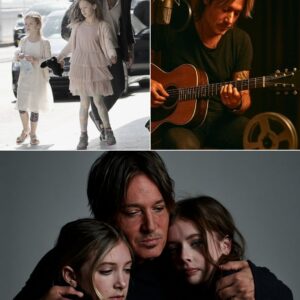Long before Grammy Awards, sold-out world tours, and beloved hits like Haven’t Met You Yet and Feeling Good, Michael Bublé faced a rejection that could have ended his career before it began. In the early 2000s, while hustling through smoky lounges and wedding gigs in his native Canada, he was told something that might have broken a less determined artist: he was “too unattractive” to make it on stage.
Industry insiders dismissed his retro style as outdated and doubted he could sell records in a pop-driven market obsessed with trends and image. But instead of reinventing himself to fit the moment, Bublé made a decisive, career-defining choice: he stayed true to who he was.
“I knew I wasn’t a fashion model,” Bublé later reflected. “But I also knew that my voice, my heart, and how I made people feel — that was my power.”
Betting on Timelessness
While many young artists chased fleeting fads, Bublé doubled down on timeless sound and authenticity. Drawing inspiration from legends like Frank Sinatra, Dean Martin, and Nat King Cole, he brought classic swing and big-band music into the modern era — adding his own boyish charm and relatable warmth.
His break came thanks to an unexpected advocate. At a wedding where Bublé was performing, former Canadian Prime Minister Brian Mulroney heard his voice and helped connect him with famed producer David Foster. Foster, impressed by Bublé’s talent and charisma, decided to take a chance.
It paid off.
From Rejection to Global Stardom
Bublé’s 2003 self-titled debut album became an international success, setting the stage for a career that would see him become one of the most recognizable modern crooners in the world. Albums like It’s Time and Call Me Irresponsible followed, cementing his place as a chart-topping artist with a voice steeped in soul and swing.
The man once told he didn’t have the right “look” was now captivating audiences around the globe — not with flash or trend-chasing, but with emotional authenticity and timeless style.
A Star Built on Heart, Not Image
Over the years, Bublé has won fans not just through music but through his personality: warm, humorous, and open-hearted. As a performer, father, and husband, he has stayed grounded, proving that artistry and emotional connection matter more than fitting an industry mold.
His journey is a powerful reminder that rejection can become redirection — and that staying true to your craft can build a legacy no fleeting trend can match.
Michael Bublé didn’t change himself to fit an industry standard. Instead, he built his own stage — one filled with swing, sincerity, and the kind of soul that never goes out of style.





